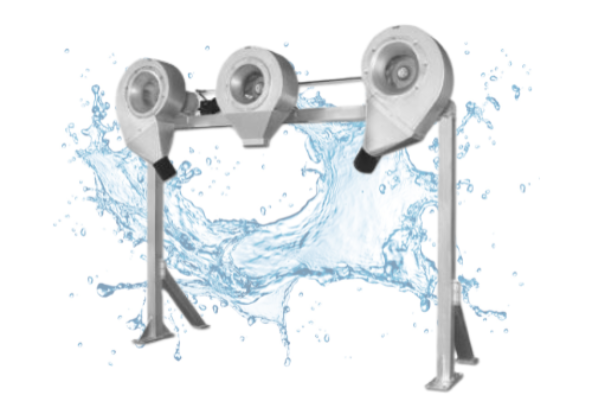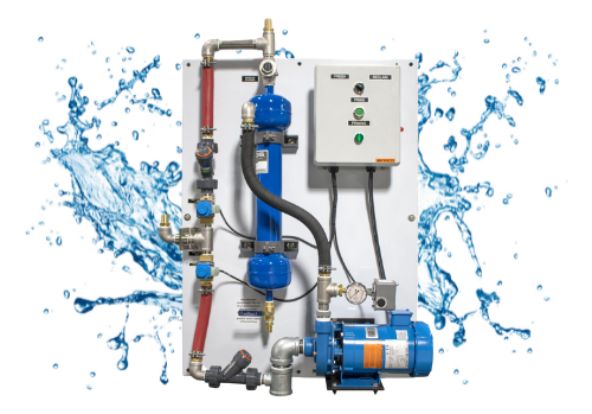Debunking Common Myths About Car Washes: The Facts Behind The Foam
Car washes are commonly used machines by almost every driver on the road these days, and like anything with very widespread use – people have spawned ideas and myths about the industry that keeps your automobiles shiny and clean. Most of these ideas either came from things that perhaps used to be true, but have been phased out due to updated technology or better equipment, while some are just phenomena that inspired widespread rumor.
Will car washes do a good job cleaning?
One common misconception that deters potential users or investors is the effectiveness of automatic car washes. There’s a widespread belief that these systems might not clean as thoroughly as a careful hand wash. However, this is not necessarily true. While hand washing has its advantages, particularly in terms of detail, advanced automated car wash systems are engineered to provide a comprehensive and efficient cleaning experience. They employ high-pressure water jets, specialized biodegradable soaps, and soft-touch or touchless cleaning mechanisms, enabling them to effectively remove dirt, grime, and even the most stubborn stains. These features, combined with their meticulous programming and sensor-based technology, allow them to clean every nook and cranny of a vehicle, often surpassing the cleaning efficacy of manual methods.
Not only do these automated systems ensure a thorough cleanliness, but they also achieve this in a significantly reduced time frame. The average automated car wash completes the cleaning process in about 90 seconds, a duration in which a manual washer might just be applying the first layer of soap. This efficiency means that car owners can enjoy not just a spotless vehicle, but also the convenience of saving time.
Additionally, these systems are often equipped with advanced drying technologies, ensuring that cars come out not only clean but also dry, further reducing the time spent on the overall cleaning process. No need to buy the perfect kind of towels, then wash and dry them over and over again every time you need a dry car.

Will a car wash affect a vehicles paint job?
One of the most enduring myths about friction car washes is that the contact material used for a higher quality wash may cause swirls or scratches to your vehicle’s paint job. This misconception often stems from outdated information, incidents involving older, less advanced systems and fabrics or poorly maintained car wash equipment or wash areas. The car wash industry has evolved significantly, and today’s technology is designed to be exceedingly gentle on your vehicle’s exterior. Save for external forces, the friction material when combined with soap acts as a soft cleaning device on any car’s exterior.
With any car wash, however, it is valuable to understand the importance of keeping the wash bay clean. A reason that many car washes prohibit the usage of the wash after a “mudding” or off-roading activity with a car or truck, is due to the likelihood that they have brought with them possibly detrimental, sharp rocks from the ground. With materials like Broadway Equipment’s tightly woven polyurethane brushes, however, it is near impossible for a well cleaned and maintained machine to pick up any harmful rocks or dirt that could compromise the coats on a car. It’s also worth noting that hand washing a car with improper materials like coarse towels can actually be more harmful in causing scratches to the paint. Hand towels also make it easier to drag dirt from one spot of the car to the other, and this dragging motion can leave imperfections as well.
Automatic washes must use more water than hand washing, right?
Many are lead to believe that car wash machines are egregious water wasters. While older systems may have consumed more water, modern car wash technology focuses on water efficiency and recycling. In regards to efficiency, did you know that the average hand-wash for a car can take up to 140 gallons of water for a decent wash? This is usually in conjunction with pressure washers, which generally hook up to outdoor faucets which often have to methods of water recycling, filtration, or data tracking. A user could blow through a severely heightened amount of water just by not paying attention, easily racking up the water bill. This is in great contrast to Broadway systems, like the Rollover machine – for example – which only takes around 35 gallons for a comparably effective wash. Being an automated machine, this is a consistent basis for water usage, and leaves little to no room for human error and wastefulness. These are the base machinery numbers, which don’t include the usage of our specialized water recycling systems.
Broadway’s “Hydro 70 Water Recycle system”, for example, can recycle up to 90% of the water used during the washing process. At maximum efficiency, you can expect this system to produce a consistent 35 gallons of recycles water per minute. Many cities can have water regulation codes in place, and installing equipment like this helps in not only reducing the water bill but also the environmental footprint of the wash, helping meet these guidelines.

Will I have to spend money fixing my equipment often?
Another common myth in the car wash industry is the belief that automated car wash systems are prone to frequent breakdowns, potentially disrupting business operations. However, this notion is removed from Broadway’s automated car wash systems which are a product of rigorous testing and innovative engineering, ensuring they are built for durability and reliability.
The key to the longevity and efficient functioning of these systems lies in regular maintenance and checks. Contrary to the myth, with proper upkeep, a car wash machine can run smoothly for well over ten years, becoming a reliable and valuable asset to any business. This regular maintenance not only ensures operational efficiency but also contributes significantly to a business’s bottom line by reducing unexpected downtime and extending the equipment’s lifespan.
As a general rule, a rollover car wash should cost you on average less than 5K per year, and down time should be limited to at most to a couple of short times per year. Carwash maintenance and chemicals need to also be part of the overall cost to operate.
My clients’ cars are WAY too big for a car wash!
In the ever-changing automotive landscape, a significant trend is the rise in popularity of larger vehicles such as trucks and SUVs. This evolution brings forth a critical question regarding the adaptability of automated car washes to these diverse vehicle sizes. Despite common misconceptions, modern car wash systems have remarkably evolved to become highly versatile, capable of accommodating a wide spectrum of vehicle dimensions.
One of the challenges presented by this trend is the varied sizes and modifications of vehicles, including lift kits and extended wheelbases. Modern car wash technologies have risen to this challenge through several innovative adaptations. These include greater heights and widths to cater to different vehicle sizes, ensuring thorough cleaning without risk of damage. Additionally, some systems feature specialized bays specifically designed for larger vehicles, including those with dual rear wheels (dually trucks), providing enough space for wider tires. Advanced systems also offer a variety of wash settings and tools, tailored to meet the specific needs of different vehicle shapes and sizes, thus ensuring a consistent and thorough clean for each type of vehicle.
Whether you have a compact car or a larger SUV, Broadway Equipment’s designs are able to be customized to whatever vehicles may be coming through your dealership. We produce sizes from 84” tall all the way up to 132”, to accommodate for a growing desire for larger modern vehicles. Our car washes also don’t require dually pick-up truck owners to shy away from a clean wash, our modified bays offer enough tire space for even the widest passenger vehicles. Send an inquiry to our architecture team today to see what possibilities you may find with your space at our custom drawing design page.
Most retail car washes look a lot flashier than dealership washes, does that mean they clean better?
A final prevailing myth is that a car wash’s quality can be judged by the experience it provides. As we discussed in our previous blog post on Retail vs. Dealership Car Washes, retail setups often feature a spectacle of lights, vividly colored foam, and aromatic soaps. While these elements certainly enhance the user experience, they shouldn’t be misconstrued as indicators of superior cleaning quality.
Dealership car washes, where the emphasis is on efficiency and effectiveness, generally forgo these sensory frills. Here, the primary goal is to deliver a thorough and efficient wash, preparing the vehicle either for the showroom or for its return to the customer. In essence, the bells and whistles might be entertaining in a retail setting, but they don’t necessarily equate to a cleaner car.
